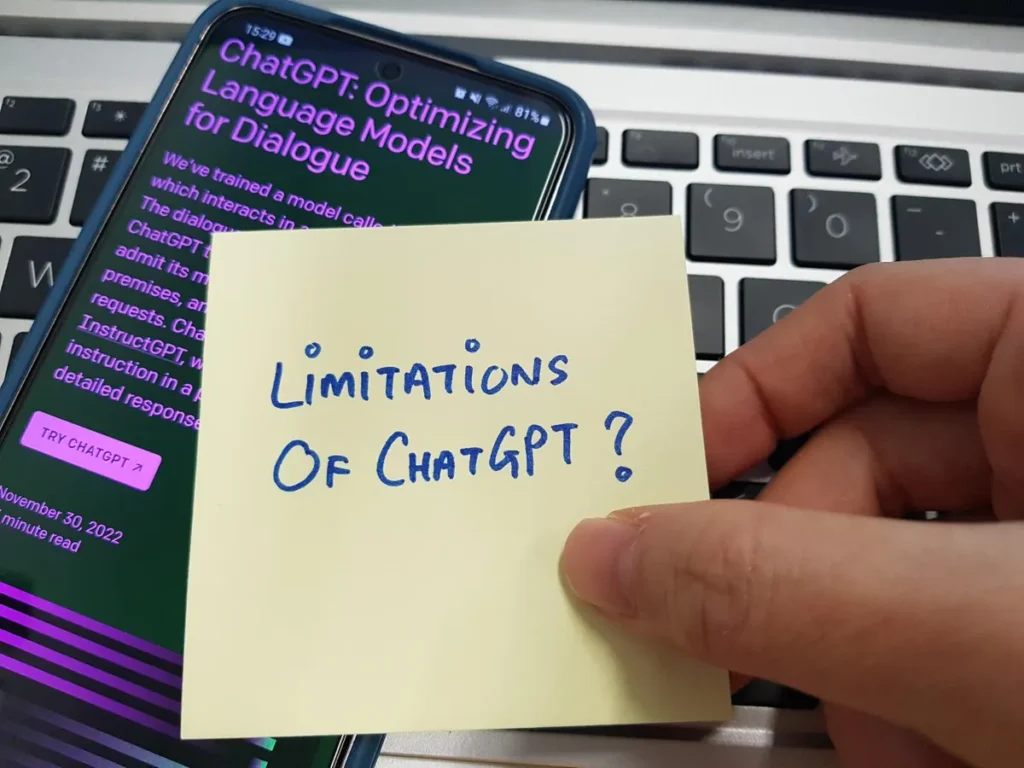
What Are the Cons of Using ChatGPT and AI?
The rise of artificial intelligence (AI) and machine learning technologies has significantly transformed the way we work and live. Among the leading innovations at the forefront of this movement is ChatGPT, developed by OpenAI. This powerful model can generate human-like text, answer queries, and engage in conversations with users. While free ChatGPT offers numerous advantages, such as accessibility and enhanced productivity, it is crucial to examine the cons associated with its use and the broader implications for society.
1. Misinformation and Lack of Accuracy
One of the most pressing concerns surrounding AI language models like ChatGPT is the propensity for misinformation. While these models can generate coherent text, they are not infallible and can produce factually incorrect or misleading information. Users relying on free ChatGPT for accurate data may inadvertently spread falsehoods, particularly if they do not verify the information against credible sources.
AI models lack the inherent ability to discern truth from fiction, meaning that the information provided is solely a reflection of the data fed into them. In the digital age, where misinformation spreads rapidly, this poses significant risks for individuals and society at large. People may base decisions on erroneous information, leading to potential negative outcomes in various sectors, including health, finance, and governance.
2. Ethical Concerns Regarding Content Generation
The ability of AI models to generate text raises ethical questions about authorship and intellectual property. When users employ free ChatGPT to create content, the lines between original work and AI-generated text become blurred. This phenomenon can lead to concerns about plagiarism, as individuals may present AI-generated work as their own. Furthermore, the use of ChatGPT for producing content that is misleading, hateful, or harmful poses ethical dilemmas.
The responsibility of determining the appropriateness of the content still lies with the human user. However, the lack of accountability in AI-generated content can create an environment where unethical behavior flourishes. Writers, educators, and other professionals may find themselves grappling with the consequences of content produced without proper standards or oversight.
Dependency and Diminished Critical Thinking Skills
The convenience offered by free ChatGPT can lead users to develop a dependency on AI for problem-solving and content creation. Over-reliance on AI tools may diminish critical thinking skills, as individuals may hesitate to analyze information or generate original thoughts when they can simply query a model. This can be particularly concerning in academic settings, where students may use AI for essay writing rather than engaging in thorough research.
As AI becomes a more prevalent tool in our daily lives, the risk of people becoming passive consumers of information also increases. The reliance on AI can decrease engagement in deep, critical thinking, which is essential for fostering innovation, creativity, and effective decision-making. In an increasingly complex world, the ability to think critically is invaluable, and relying on AI to perform this work can stifle personal and professional growth.
4. Job Displacement and Economic Disparities
The increasing adoption of AI technologies like ChatGPT has raised concerns regarding job displacement and economic inequality. As AI can perform tasks traditionally carried out by humans—such as customer service, content creation, and data analysis—there is potential for significant workforce disruption. Low-skilled positions are particularly vulnerable to automation, which could leave many individuals without employment opportunities.
While AI can augment human capabilities in certain areas, the benefits of automation are not equally distributed. High-skilled workers may adapt and thrive in an AI-enriched landscape, but those in lower-skilled jobs may struggle to transition into new roles. This dynamic can exacerbate existing economic disparities, as certain demographics face greater barriers to reentering the workforce or acquiring new skills. The collective impact could lead to social unrest and economic instability.
5. Data Privacy and Security Risks
Using free ChatGPT often involves sharing personal or sensitive information, resulting in significant data privacy concerns. While developers implement measures to protect user data, the potential for breaches, leaks, and misuse still exists. AI models require vast amounts of data to train and improve their algorithms, leading to concerns about how this data is collected, stored, and utilized.
When users interact with AI tools, they may inadvertently expose their data to third parties or have it harvested for commercial use. This raises ethical questions about user consent and the ownership of data generated through interactions with AI. Furthermore, malicious actors can exploit AI-generated information for nefarious purposes, including identity theft or phishing scams.
6. Limited Understanding of User Intent
AI language models like ChatGPT rely heavily on patterns learned from large datasets, which means they may not fully comprehend user intent or the nuances of human conversation. This lack of understanding can lead to misunderstandings, inappropriate responses, and a frustrating user experience. In more sensitive contexts, AI models may fail to recognize emotional cues, which can result in unintended harm or insensitivity.
For instance, when responding to users experiencing distress or seeking nuanced advice, ChatGPT may provide generic replies that do not adequately address the emotional context. This limitation underscores the challenges of relying on AI for interpersonal communications, mental health support, or other sensitive topics where empathy and understanding are paramount.
7. Hindrance to Creativity and Original Expression
While AI models can assist in generating ideas or offering prompts, there is a concern that overutilization of tools like free ChatGPT may stifle human creativity. The availability of AI-generated content can discourage individuals from exploring their own creative potential, leading to a homogenization of ideas. If everyone relies on AI for generating content, original expressions of art, writing, and innovation may diminish.
Creativity is often a product of unique perspectives and experiences. When individuals turn toward AI as a primary source for inspiration or creative output, they may unintentionally limit themselves to patterns and trends reflected in the model’s training data. Consequently, this may create an ecosystem where novel ideas are undervalued, potentially inhibiting cultural and intellectual advancement.
8. Lack of Emotional Intelligence
AI lacks genuine emotional intelligence, which can lead to challenges in communication, especially in contexts that require empathy or emotional support. Users seeking understanding or comfort from AI may find responses inadequate or unrelatable. This limitation can be detrimental in scenarios involving mental health, relationship counseling, or sensitive interpersonal issues.
Unlike human interactions, where emotional cues help inform responses, AI-generated messages are devoid of this understanding. This can create a disconnect between users’ needs and the responses they receive from AI models like ChatGPT. As we continue to integrate AI into our lives, the absence of emotional intelligence becomes a crucial consideration in ensuring that support systems remain human-centric.
9. The Risk of Algorithmic Bias
AI models are trained on vast datasets that may reflect inherent biases present in society. Consequently, ChatGPT and similar AI systems can unintentionally perpetuate these biases, resulting in unfair or discriminatory outcomes. For example, if an AI model generates text that reflects stereotypes or biases against specific demographics, it can reinforce harmful narratives.
The presence of algorithmic bias poses significant risks, especially in fields such as hiring, law enforcement, and healthcare, where unbiased decision-making is critical. Ensuring fairness and inclusivity in AI-generated content requires ongoing efforts to identify and mitigate bias within training datasets and throughout the model development process. Without these safeguards, the potential for bias in AI applications raises ethical dilemmas and calls into question the integrity of AI-generated outcomes.
10. Limited Scope and Comprehension
Despite its impressive language generation abilities, free ChatGPT operates within a limited scope of knowledge. The model’s understanding is based solely on the data it was trained on up until a specific point in time. As a result, it may struggle with current events, emerging trends, or highly specialized topics not well-represented in its training data. While ChatGPT can provide general information or insights, users seeking expert-level knowledge or up-to-date information may find its responses insufficient.
This limitation can lead to frustration, particularly for users expecting comprehensive answers to complex questions. Knowledge gaps may further perpetuate misinformation, as users may lack the context to discern when an AI’s response is misleading or inaccurate. Engaging with AI generative models should be done with caution and supplemented by additional research and sources.
While free ChatGPT and similar AI technologies present exciting possibilities for enhancing communication and productivity, it is essential to acknowledge the potential downsides that come with their use. Misinformation, ethical concerns, job displacement, and data privacy risks are only a few of the challenges associated with AI.
As society increasingly relies on AI tools, it is crucial for users, developers, and policymakers to engage in responsible practices, ensuring that these technologies are applied ethically and equitably. By fostering a better understanding of the limitations and risks inherent in AI models like ChatGPT, we can create a more informed populace that leverages the benefits of AI without falling prey to its pitfalls.
Through continuous dialogue and reflection, we can pave the way for the responsible development of AI technologies that enhance human capabilities while prioritizing ethical considerations, accountability, and the overall well-being of society.

Leave a Reply